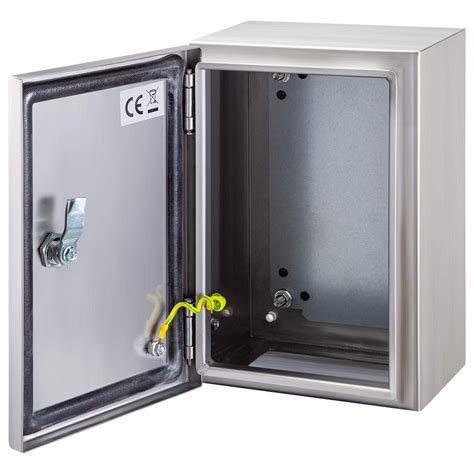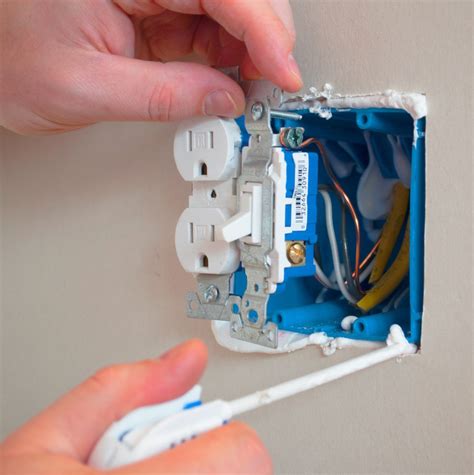caulk electrical boxes So Should I Air Seal My Electrical Box? All the advice out there about air sealing electrical boxes seems to assume that you’re dealing with new construction—or at least properly wired, modern Romex cable in correctly .
Premier Equipment specializes in used CNC machines with equipment such as used CNC lathes, used CNC mills and used CNC verticals. Our extensive inventory is useful to our customers who want to stay informed on brands like used Mazak, used .
0 · wall mounted electrical box
1 · sealing electrical boxes
2 · how to air seal electrical box
3 · electrical sealing holes
4 · electrical sealing ceiling
5 · electrical box sealing instructions
6 · ceiling mounted electrical box
7 · air sealing electrical box installation
A usinagem de precisão CNC refere-se ao uso de projetos de fabricação auxiliada por computador para moldar a matéria-prima nos produtos desejados. É um processo subtrativo que envolve o corte de excessos em diversos materiais com diferentes processos de fabricação.
wall mounted electrical box
For ceiling-mounted electrical boxes, access from the attic to caulk around the box and caulk all holes in the box with approved sealants. First, find boxes by removing insulation. Replace insulation when done.
Seal around installed wiring using caulk or canned spray foam. For ceiling-mounted electrical boxes, install the electrical box in the ceiling drywall, then caulk around the base and caulk all holes in the box with fire-retardant caulk.Even though light fixtures fasten tight to the ceiling, there’s enough of a gap to let air flow through the many holes in and around the electrical boxes they’re fastened to. In this video, Mike Guertin shows how to caulk these penetrations. Outdoor receptacle boxes aren't intended to be sealed. Yes, that's right: the standard outdoor/weatherproof electrical enclosures in use in the US are not intended to be sealed against water ingress. In fact, the NEC contains an .
how to make metal sheet
sealing electrical boxes
Air sealing the holes inside an electrical box: silicone caulk, every time. Air sealing the gap around an electrical box: silicone caulk for gaps below 1/4″, or in high temps. Otherwise, spray foam.
So Should I Air Seal My Electrical Box? All the advice out there about air sealing electrical boxes seems to assume that you’re dealing with new construction—or at least properly wired, modern Romex cable in correctly . The electrical code forbids you from filling the air in the box with spray foam. You've done a pretty good job of keeping the foam out of the box. As long as you don't let the foam encroach on the volume of the box, everything should be OK.For ceiling-mounted electrical boxes, access from the attic to caulk around the box and caulk all holes in the box with approved sealants. First, find boxes by removing insulation. Replace insulation when done. Regular caulk or foam outlet can be used on wall-mounted boxes. If the electrical boxes aren’t mounted flush with the drywall, adding a box extender will make them easier to seal. They’re available at most home centers for single, round and multiple-gang boxes.
Seal around installed wiring using caulk or canned spray foam. For ceiling-mounted electrical boxes, install the electrical box in the ceiling drywall, then caulk around the base and caulk all holes in the box with fire-retardant caulk.
Even though light fixtures fasten tight to the ceiling, there’s enough of a gap to let air flow through the many holes in and around the electrical boxes they’re fastened to. In this video, Mike Guertin shows how to caulk these penetrations. Outdoor receptacle boxes aren't intended to be sealed. Yes, that's right: the standard outdoor/weatherproof electrical enclosures in use in the US are not intended to be sealed against water ingress. In fact, the NEC contains an explicit allowance (in 314.15) for drain holes in the bottom of boxes. Why is this? Air sealing the holes inside an electrical box: silicone caulk, every time. Air sealing the gap around an electrical box: silicone caulk for gaps below 1/4″, or in high temps. Otherwise, spray foam.
So Should I Air Seal My Electrical Box? All the advice out there about air sealing electrical boxes seems to assume that you’re dealing with new construction—or at least properly wired, modern Romex cable in correctly installed junction boxes. I use caulk and expanding foam to seal the box. Using a high-quality painter’s caulk, caulk the edge of the electrical box to the rough cut drywall itself. I got lucky and the drywallers did a decent job of cutting out for my boxes, so the gap is not very big.You can seal the electrical boxes with fire rated silicone caulk (not intumescent fire caulk). You can also use the orange great stuf foam, but I like the fire caulk better. Try not to get a lot inside the box, just seal the holes and the edge of the box where it meets the drywall.
how to make metal brackets h1z1
The electrical code forbids you from filling the air in the box with spray foam. You've done a pretty good job of keeping the foam out of the box. As long as you don't let the foam encroach on the volume of the box, everything should be OK.
For ceiling-mounted electrical boxes, access from the attic to caulk around the box and caulk all holes in the box with approved sealants. First, find boxes by removing insulation. Replace insulation when done.
Regular caulk or foam outlet can be used on wall-mounted boxes. If the electrical boxes aren’t mounted flush with the drywall, adding a box extender will make them easier to seal. They’re available at most home centers for single, round and multiple-gang boxes.
Seal around installed wiring using caulk or canned spray foam. For ceiling-mounted electrical boxes, install the electrical box in the ceiling drywall, then caulk around the base and caulk all holes in the box with fire-retardant caulk.Even though light fixtures fasten tight to the ceiling, there’s enough of a gap to let air flow through the many holes in and around the electrical boxes they’re fastened to. In this video, Mike Guertin shows how to caulk these penetrations. Outdoor receptacle boxes aren't intended to be sealed. Yes, that's right: the standard outdoor/weatherproof electrical enclosures in use in the US are not intended to be sealed against water ingress. In fact, the NEC contains an explicit allowance (in 314.15) for drain holes in the bottom of boxes. Why is this? Air sealing the holes inside an electrical box: silicone caulk, every time. Air sealing the gap around an electrical box: silicone caulk for gaps below 1/4″, or in high temps. Otherwise, spray foam.
So Should I Air Seal My Electrical Box? All the advice out there about air sealing electrical boxes seems to assume that you’re dealing with new construction—or at least properly wired, modern Romex cable in correctly installed junction boxes. I use caulk and expanding foam to seal the box. Using a high-quality painter’s caulk, caulk the edge of the electrical box to the rough cut drywall itself. I got lucky and the drywallers did a decent job of cutting out for my boxes, so the gap is not very big.

how to air seal electrical box

For instance, the best way to conceal such a junction box is to use a large, deep 4-11/16" square metal box (which you need for the cubic inches), .
caulk electrical boxes|electrical sealing holes